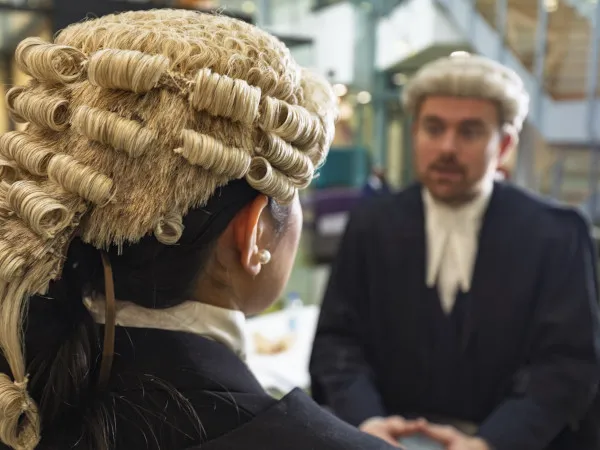Prosecution Guidance
About our prosecution guidance
The Crown Prosecution Service (CPS) prosecutes cases independently and fairly. We work to deliver justice in every case.
How we make prosecution decisions
All our prosecutors follow the Code for Crown Prosecutors. This code sets out the key principles that guide every decision about whether to prosecute a case.
Our prosecution guidance helps prosecutors apply the Code correctly in different types of cases. The guidance explains how to make decisions that are:
- fair to all parties
- transparent and clear, and
- consistent across similar cases
This transparency helps build public confidence in the prosecution process and ensures accountability in our decision-making.

What our prosecutors do
The CPS prosecutes cases independently and fairly. We work to deliver justice in every case.
The Code for Crown Prosecutors sets out the main principles that Crown Prosecutors must follow when making decisions about cases.
Why we have prosecution guidance
Our prosecution guidance helps Crown Prosecutors apply the Code when making decisions about whether to prosecute cases. The guidance makes sure that decisions are fair, clear, and consistent.
How to find our prosecution guidance
You can find our prosecution guidance in the library, browse by subject areas and types of offences or use the keyword search for specific topics.
Browse by category
Appeals, Reviews and Post-Conviction
Communications, Digital and Publications Crime
Court Processes and Case Management
Defendants
Disclosure
Drugs, Terrorism and National Security
Engaging with Victims page/Victim Service
Fraud, Corruption and Economic Crime
Hate Crime and Discrimination
International and extradition
Media, Public Interest and Professional Standards
Public Order and Regulatory Offences
Road traffic offences
Sentencing and Orders
Victims, Witnesses and Community Impact
Violence Against Women and Girls (VAWG) and Child Abuse
Violent Crime, Weapons and Public Safety
Vulnerable Persons and Safeguarding
Wildlife and Domestic Animals
How we use words in our prosecution guidance
Language and the words we use are important in the Criminal Justice System. Different organisations may use different terms for the same things.
'Victim'
We use the word 'victim' in CPS prosecution guidance because it refers to crime in general, not to specific cases. This matches the was ‘victim’ is used in other publications like the Victims' Code.
In our guidance, 'victim' includes other terms like 'complainant' and 'survivor.' It means:
- a person who has made an allegation
- a person who has been harmed – including physical, mental, or emotional harm, or financial loss – directly caused by a criminal offence
- a close relative (or nominated family spokesperson) of a person whose death was directly caused by a criminal offence
'Suspect,' 'Defendant,' and 'Offender'
All CPS prosecution guidance uses these terms:
- Suspect – a person who might be the subject of formal criminal proceedings
- Defendant – a person who has been charged or summonsed
- Offender – a person who has admitted guilt for committing an offence, or been found guilty in court
Important note
Using any of these words does not make any finding or judgement about allegations. All allegations will be dealt with fairly and impartially, following the Code for Crown Prosecutors.
We are currently reviewing our prosecution guidance to make sure it uses these words consistently for 'victim,' 'suspect,' 'defendant,' and 'offender.'